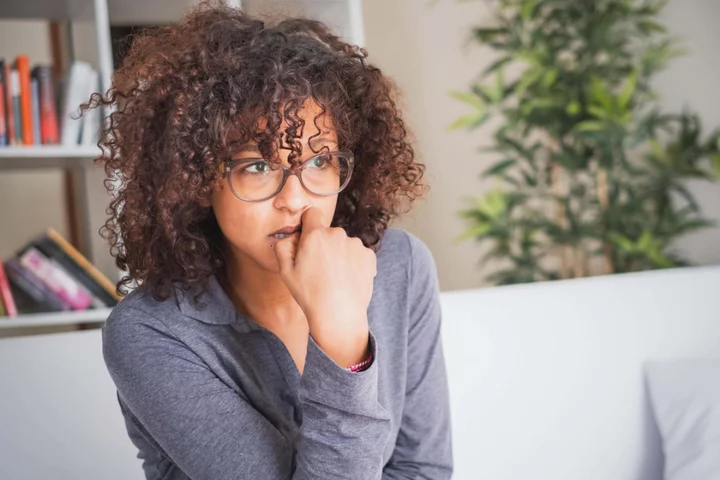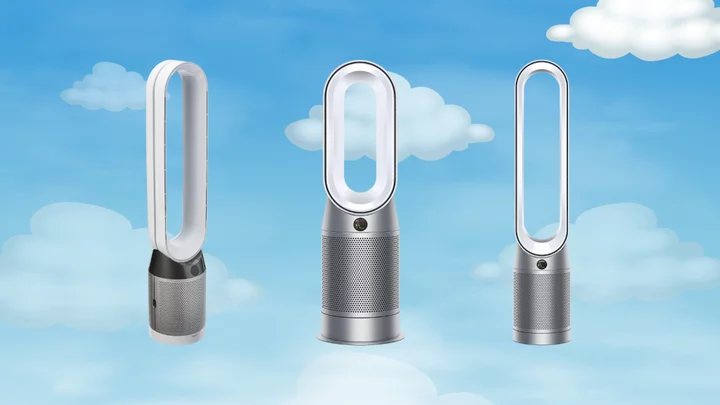Hot flushes and night sweats are commonly associated with the menopause – but the vast majority of menopausal women also suffer from mood and emotional problems, such as stress and anxiety.
Research recently carried out by GP and menopause specialist Dr Louise Newson, founder of Balance Menopause, found 95% of nearly 6,000 perimenopausal and menopausal women had experienced a negative change in their mood and emotions during the menopause, with stress and anxiety being the most common psychological symptoms.
Speaking to mark Mental Health Awareness Week (May 15-21), Newson says: “Because we often frame the menopause in terms of physical symptoms, such as hot flushes and night sweats, psychological symptoms, such as anxiety and depression, can go under the radar.
“Every year I see hundreds of women struggling with menopause, and thousands more reach out on social media, looking for advice on symptoms that can impact relationships, social lives, confidence and careers.”
Here, Newson, and other menopause and anxiety experts, discuss the link between the menopause and anxiety, and how to deal with it…
What causes anxiety during the menopause?
Low mood and anxiety can be common features of the perimenopause and menopause due to fluctuating and falling hormones, says Newson. “When oestrogen falls, levels of the mood-boosting hormone serotonin fall, too, while cortisol (the primary stress hormone) rises,” she explains. “In addition, the knock-on effects of physical symptoms, such as fatigue, hot flushes and aches and pains, can affect mood and self-esteem.”
How common is menopausal anxiety?
Newson’s research shows most women (95%) have some sort of mood dip during the menopausal period.
Indeed, Dave Smithson, operations director at Anxiety UK, suggests anxiety is one of the key symptoms, if not the main symptom, affecting women during the perimenopause and menopause. “Often anxiety fails to receive the attention it warrants as a symptom of the menopause among the medical profession and indeed the public, which is concerning given the profound impact it can have,” he stresses.
Who is likely to suffer from anxiety during the menopause?Sexual and reproductive health consultant Dr Paula Briggs, chair of the British Menopause Society, says the menopausal period has been described as a ‘window of vulnerability’, explaining: “Some women experience anxiety and low mood or depression in addition to other better-recognised menopausal symptoms. Sometimes these symptoms occur in isolation and the link with menopause may be less clear.
“Mood-related changes are more likely in women who’ve had previous mental health problems, and in women experiencing surgical menopause [removal of the ovaries and or womb].”
Can you get menopausal anxiety when you’ve never been anxious before?
Anxiety caused by the menopause can strike women who’ve never had an anxiety problem before, Smithson points out. “Many women report new-onset anxiety, having never previously experienced anxiety at a level that it could be termed an anxiety disorder,” he says. “Others report a worsening of their pre-existing anxiety condition, as a result of the menopause.”
“For women who’ve lived with anxiety for many years, when the menopause hits, they may report finding their anxiety has taken on a whole new identity, becoming more severe, intense, frequent or disabling, and consequently very challenging to manage.”
What are menopausal anxiety symptoms?
Although there are different types of anxiety, the symptoms tend to be the same irrespective of the underlying cause, explains Briggs. She says they can include feeling tense and nervous, being unable to relax, having difficulty concentrating, feelings of panic and dread, being unable to cope with normal daily activities, being overwhelmed, self-consciousness, and feelings of weakness and fatigue. Physical signs of anxiety include sweating, trembling, rapid heart rate and hyperventilation.
“Where there’s no history of mental health problems and the symptoms and signs coincide with the menopause, they are more likely to be related to hormonal variability,” she says. “If there’s a background of anxiety and depression, then the symptoms and signs might be exacerbated by the menopause.”
How is menopausal anxiety treated?
Smithson says there’s still a taboo around the subject of anxiety, although he admits “great strides” towards breaking it have been made recently. “That said, access to support and treatment remain patchy, with many women left to cope alone and battle on through what can be one of the trickiest phases of their life.
“Anxiety is both treatable and manageable and we would urge any women experiencing new-onset anxiety or worsening of pre-existing anxiety to seek support.”
Briggs and Newson say HRT, if appropriate, is often the first treatment for menopausal anxiety, although Newson stresses: “HRT is the first-line treatment for all menopause symptoms, including mood-related symptoms. But the first piece of advice I give to any woman struggling with her mental health is to see a healthcare professional to discuss treatment options.” She suggests recording symptoms on the free balance menopause support app symptom tracker.
Briggs says if necessary, antidepressant medication can improve outcomes, and talking therapies, such as CBT (cognitive behavioural therapy), are also important to help manage anxiety and depression, irrespective of the underlying trigger.
“Some women, particularly those who respond partially to HRT, may need to consider adding an antidepressant, specifically one recognised to help with anxiety,” she says.
However, Newson warns: “Often women are incorrectly prescribed antidepressants for menopause-related low mood and anxiety, but these mood changes are very different to clinical depression.”
Can lifestyle changes help?
The experts stress healthy lifestyles can really help improve anxiety symptoms, and Newson advises: “Beyond HRT, it’s so important to optimise your exercise and nutrition. A balanced diet with lots of fresh fruit and vegetables can help regulate your mood, and watch your alcohol and caffeine intake, as both can increase anxiety.
“Regular exercise will lift your mood, and help you sleep, as anxiety can be a real barrier to a good night’s sleep.”
She says studies suggest mindfulness can help with symptoms of anxiety and depression in menopausal women, and stresses: “Find time to focus on yourself and find some coping mechanisms you can turn to when you need them. If talking to a good friend helps with anxiety, give them a call. I find writing lots of lists helps me feel in control and calmer.”
And Briggs adds: “Many women have unrealistic expectations about HRT, and it’s important to stress that lifestyle management is also an important aspect of managing the menopause, along with considering things such as cognitive behavioural therapy, hypnotherapy and mindfulness.”
Read MoreCharity boss speaks out over ‘traumatic’ encounter with royal aide
Ukraine war’s heaviest fight rages in east - follow live
How to encourage green-fingered kids
Cost of sunscreen could be increasing risk of skin cancer, charity suggests
Ukraine Eurovision winners Kalush Orchestra invite Princess Kate to join them on tour









